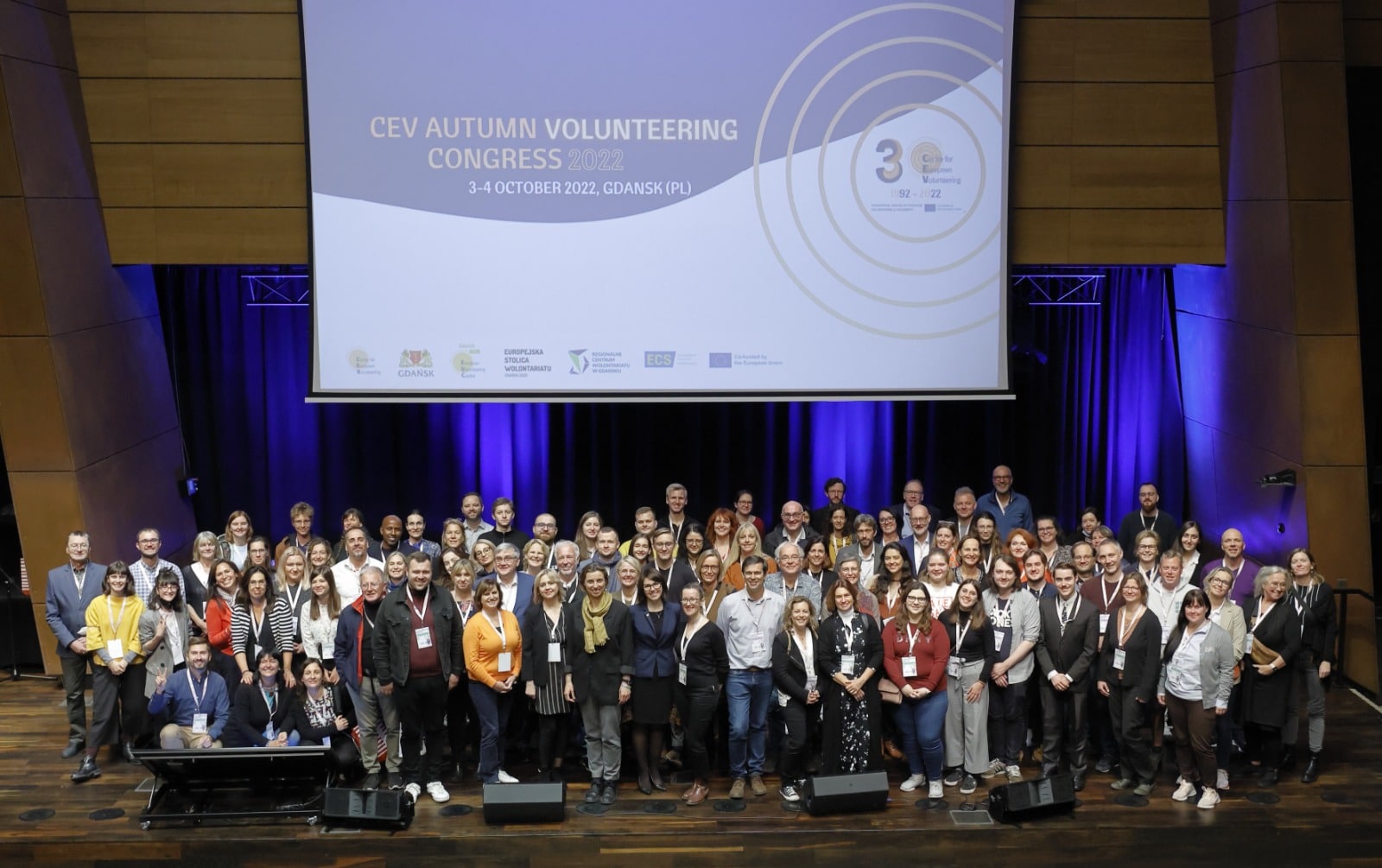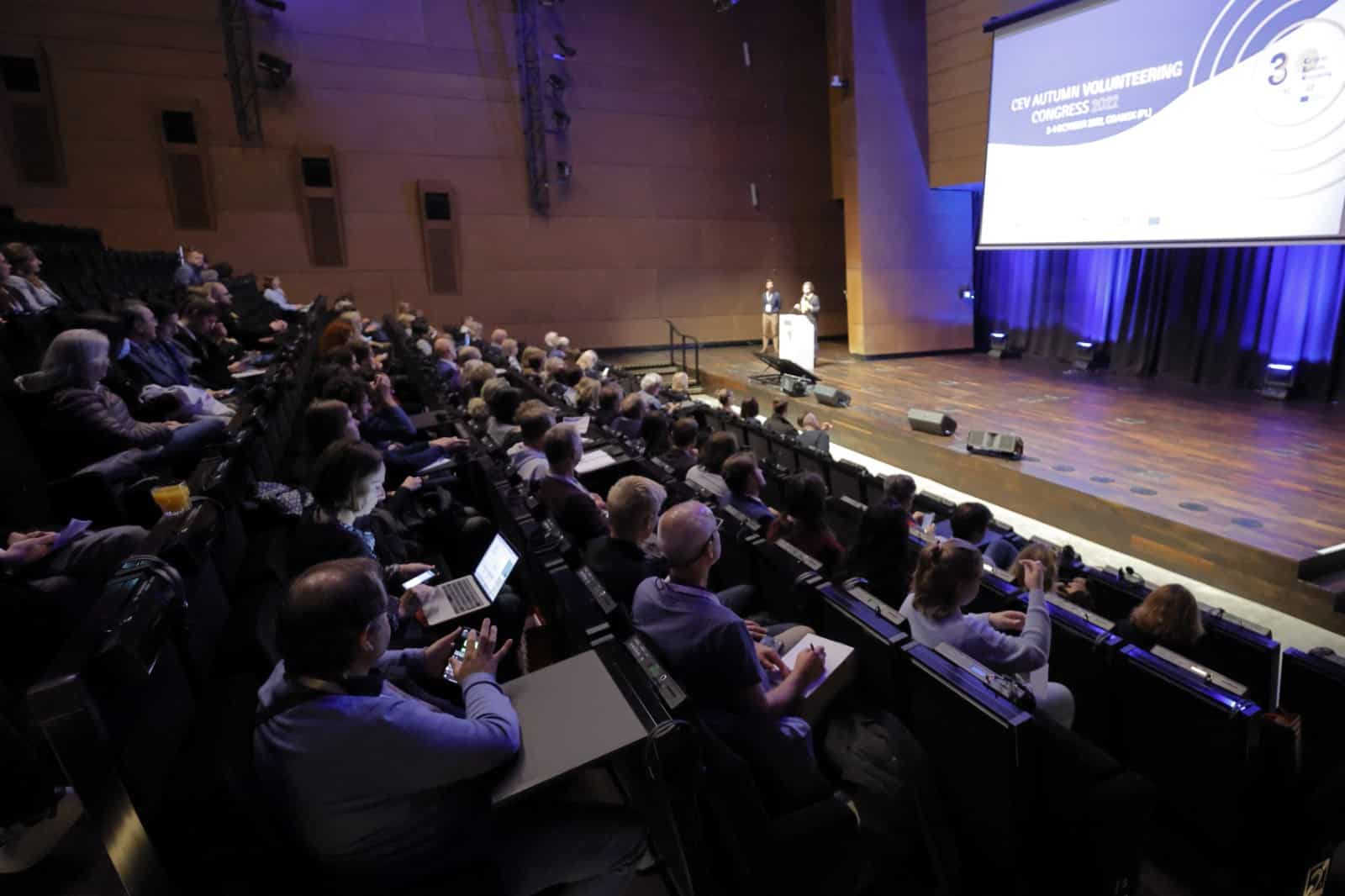Bruxelles – A European network of over 60 organizations dedicated to promoting and supporting volunteering. A network that since 1992 has transformed and grown at a European, national and regional level. It’s the Center for European Volunteering (CEV), the backbone of a sector that in the EU involves more than 90 million adults, approximately 23 percent of European citizens over the age of 15. In view of the next congress, which will be held in Dubrovnik, Croatia, from 1 to 4 October, Eunews reached out to the president of Cev, Lejla Šehić Relić.

Eunews: Cev was established in 1992. How has volunteering changed in Europe in these 30 years?
Šehić Relić: Over the last three decades, volunteering has been progressively gaining importance across Europe and a lot of resources have been invested in proving its value. There is enough evidence that supports the positive impact that volunteering and volunteers have on social cohesion, democracy, social transformation, personal and collective competences and priceless potential to enhance the well-being of individuals and communities.
We have new challenging and exciting horizons ahead of us, but we must not forget the initial vision that brought us to where we are today. Common European values that have united this network and created a space for exchange, learning, support and joint efforts to affirm volunteering as part of our tradition and an indispensable part of our future.
E: In the last years we have passed through some tough times, such as the COVID-19 pandemic and the crisis caused by the war in Ukraine. How has Cev contributed to fighting those crises?
Šehić Relić: CEV expresses our solidarity with all those suffering from the conflict in Ukraine, and with the volunteers and all those acting to stand against violence and offer support and refuge. We call for increased efforts to find solutions for a lasting peace that will protect lives and ensure dignity and respect for human rights for all those affected. Furthermore, we call the international community to ensure support to organisations and volunteers in first lines of humanitarian response.
The crisis has made our existing problems more visible. Violence, poverty, limited access to resources, fragile democracies, populism and extremism are just some of the phenomena that can make life more difficult.
That is why it is important for civil society to act and engage volunteers to promote the values of solidarity and social equality, to act against inequality, marginalisation and discrimination an to seek transparency and respect for human rights. This is, at the moment, the most valuable contribution to the resilience of society.
E: Volunteering is defined in different ways in the 27 member states. Do you see the need for more uniformity at an European scale?
Šehić Relić: Since 2011 many countries have developed stronger and more appropriate legal frameworks for volunteering and the culture of volunteering has become more accepted and understood. The Policy Agenda for Volunteering in Europe (Pave) has for many years been a reference point for many of these developments. In 2021 on the 10th anniversary of the European Year of Volunteering 2011, and the publication of the Agenda, the Cev has prepared the 2030 Blueprint for European volunteering. Building on the strengths of Pave, the Cev Helping Hands Report and the 5R policy priorities and the Cev Valuing Volunteering Report, this Blueprint serves as an additional support and guidance tool for all stakeholders wishing to see the full potential of volunteering in Europe realised.
Reflecting the fact that volunteering is defined in many different ways but that there are underlying universal principles, all our work at CEV is taken to encompass all forms of voluntary activity, whether formal, non-formal or informal, undertaken of a person’s own free-will, choice and motivation, without seeking financial gain, often carried out in support of a non-profi t organisation or community-based initiative.
At Cev we don’t advocate for uniformity in the legal framework or a specific definition given these differences across Europe but we do believe that a more coherent approach to volunteering that shares these mentioned common principles as a basis would offer several benefits.
E: What’s the goal of the Blueprint for European Volunteering 2030?
Šehić Relić: The goal is to bring to the attention of policy makers that volunteers are more than mere people power but an essential and meaningful part of european civil society, playing a crucial role in social cohesion, interpersonal relationships and paving the way to ensure that european values come to fruition.
By setting a clear vision and roadmap for the future of volunteering in Europe, Bev2030 aims to harness the potential of volunteering through five pillars: independent and inclusive engagement, new volunteers and methods, empowerment, appreciation of contribution and resources for more value. The Blueprint recognises the diverse nature of volunteering and emphasises the importance of inclusive and accessible volunteering opportunities for all individuals, regardless of their backgrounds or abilities.
The Blueprint provides a framework that encourages collaboration and cooperation among stakeholders involved in volunteering, including policymakers, civil society organisations, volunteer centres, and volunteers themselves. It promotes the exchange of knowledge, best practices, and innovative approaches to volunteering, enabling stakeholders to learn from each other and create a supportive ecosystem for volunteering initiatives.

E: Cev congress in Dubrovnik will be focused on “collaborative communities”. What do you mean with this concept?
Šehić Relić: Collaborative Communities refers to taking a proactive approach that emphasises cooperation, open communication and co-creation, among stakeholders from various sectors. It spotlights the importance of recognizing volunteers as key stakeholders in improving society, promoting social cohesion, and fostering dialogue. The focus on collaborative communities at the CEV Congress highlights the need for cross-sector collaboration and understanding of volunteering’s transformative effect. Only by working together, we can address the most pressing challenges, create inclusive and resilient communities that harness the power of volunteering for sustainable development and social change.





![Ingegneri al lavoro [foto: imagoeconomica]](https://www.eunews.it/wp-content/uploads/2025/02/Imagoeconomica_2349300-120x86.jpg)
